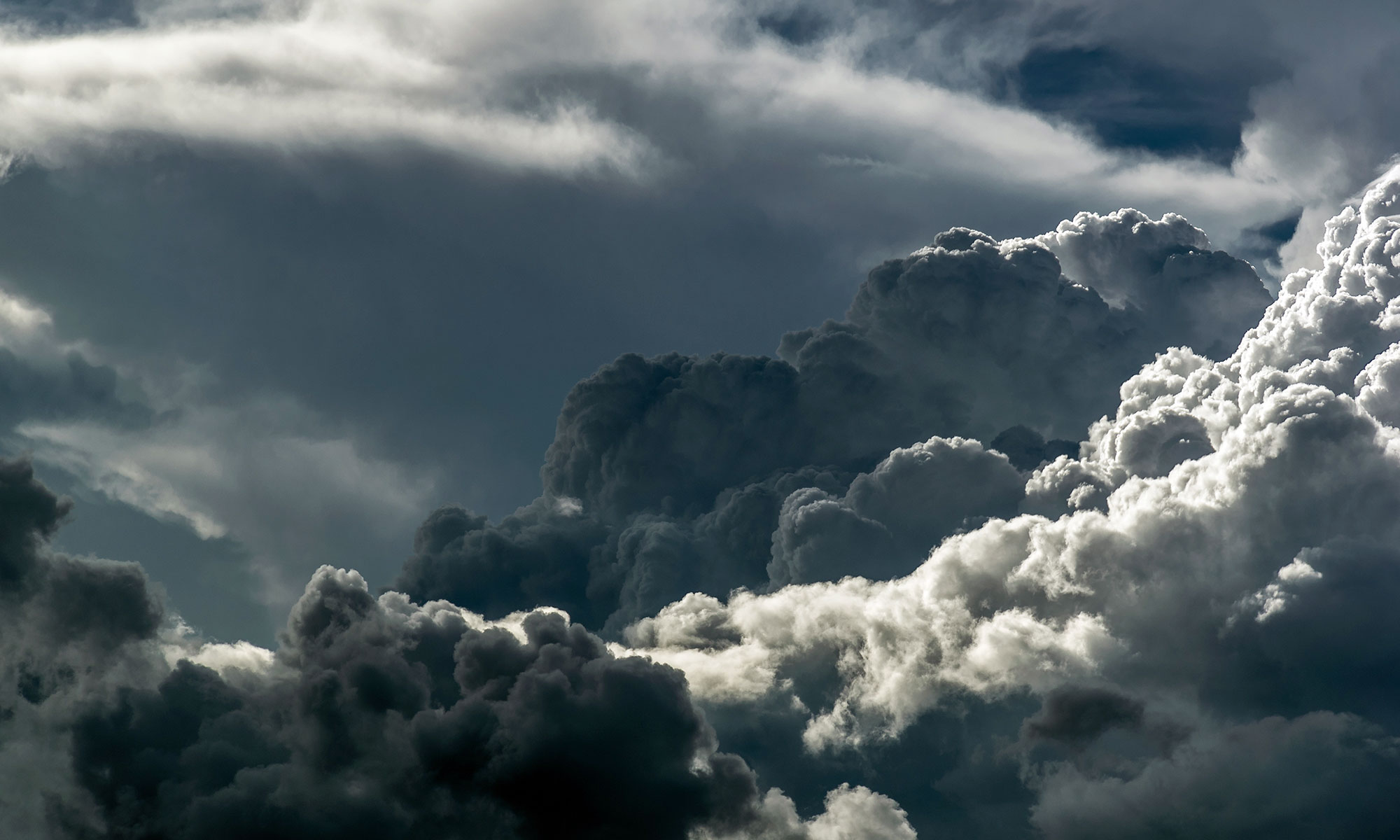The latest NWS forecast for the winter months of December-February has Illinois with an increased chance of above-average temperatures. In general, the core winter months of December, January, and February, were much warmer in Illinois and the Midwest during the last two major events in 1997-98 and 1982-83.
Along with the warmer temperatures was a noticeable drop in snowfall across most of Illinois during the core winter months. Some places in eastern and southern Illinois saw their snowfall totals cut in half. However, while the overall pattern was for less snowfall, it still snowed. And some places saw significant snowfall events in November and March, outside the core winter months.
Precipitation (rainfall + water content of snow) was closer to average and in some places, such as western and northern Illinois, wetter than average. This suggests that many of the snowfall events were replaced by rain events under the much warmer conditions.
1997-98 El Niño
The 1997-98 El Niño event saw much above average winter temperatures across Illinois and the Midwest. For Illinois, it was the 3rd warmest December-February on record at 34.6 degrees, and 5.6 degrees above average.
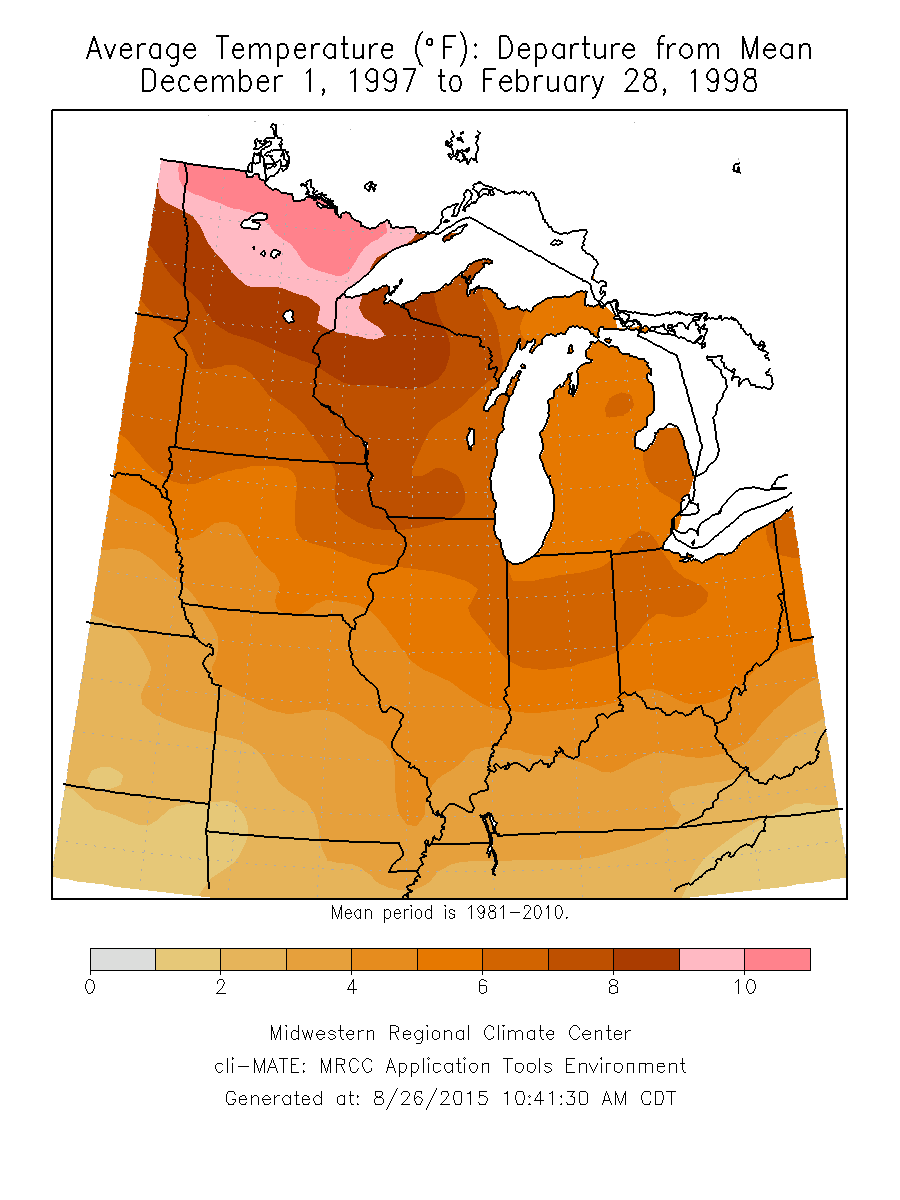
Precipitation was harder to characterize during the winter of 1997-98. Wetter than average conditions prevailed in northern and western Illinois, while the southern and eastern portions were slightly below average.
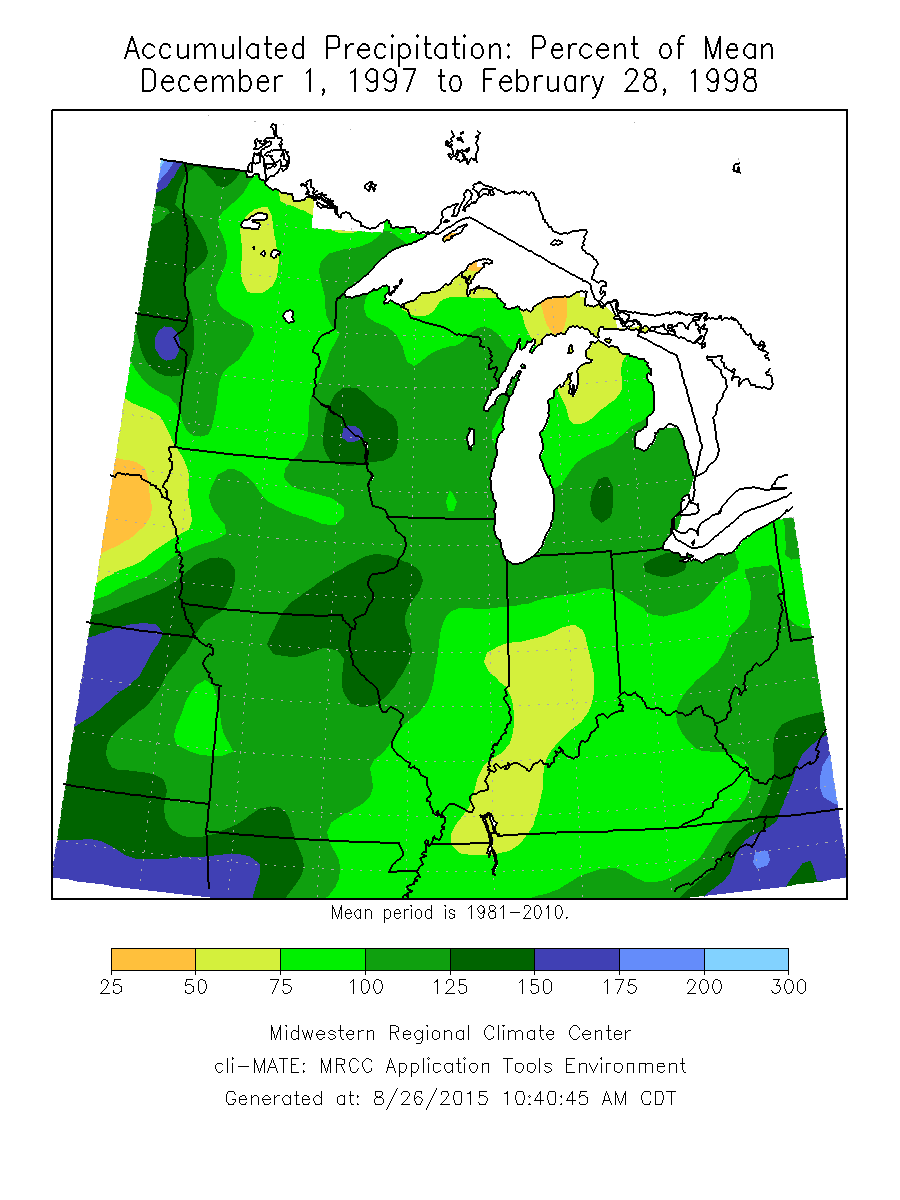
Snowfall is much below average across much of Illinois for that winter. Areas in yellow and orange received only 75 to 50 percent of average snowfall. Only western Illinois experienced near-average snowfall.
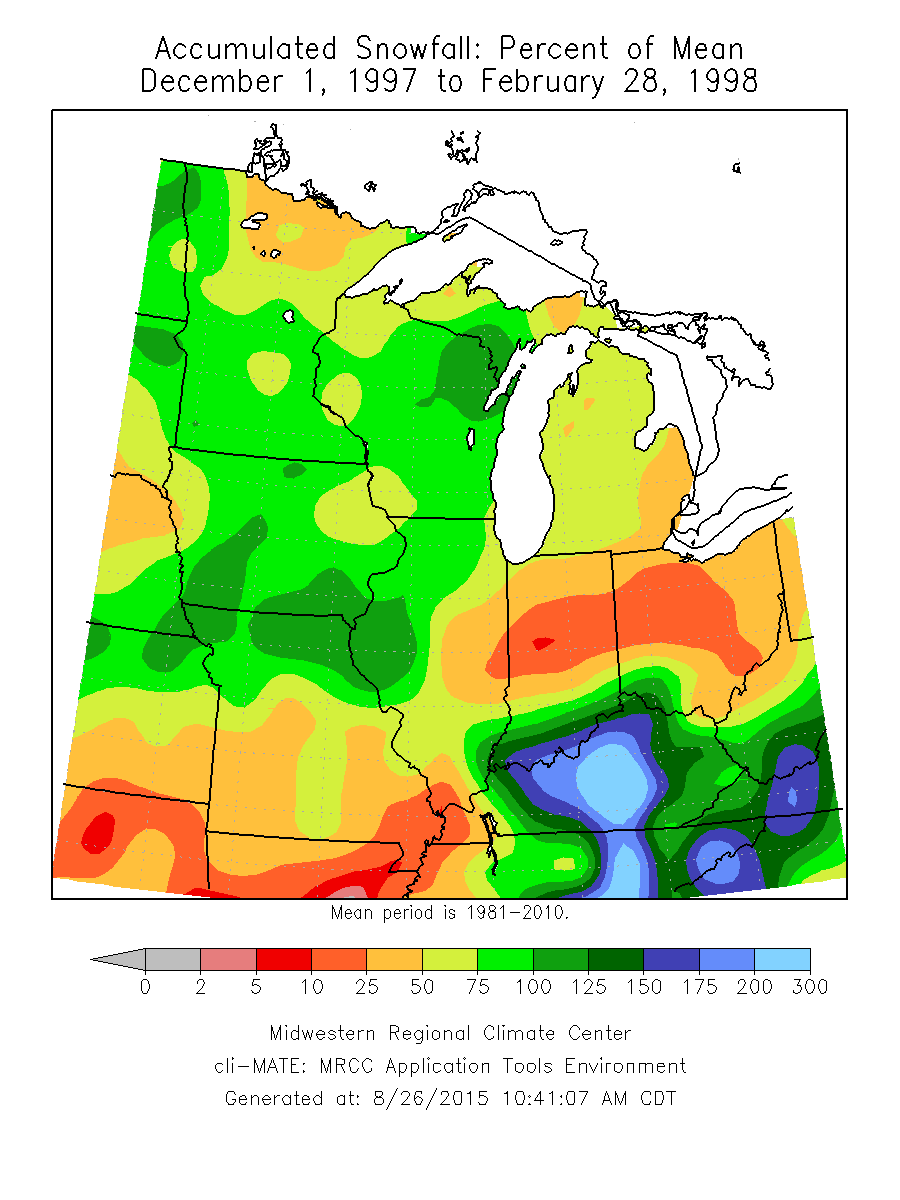
1982-83 El Niño
The 1982-83 El Niño event also saw winter temperatures well above average across Illinois and the Midwest. For Illinois, it was the 6th warmest December-February on record at 33.6 degrees, and 4.6 degrees above average.
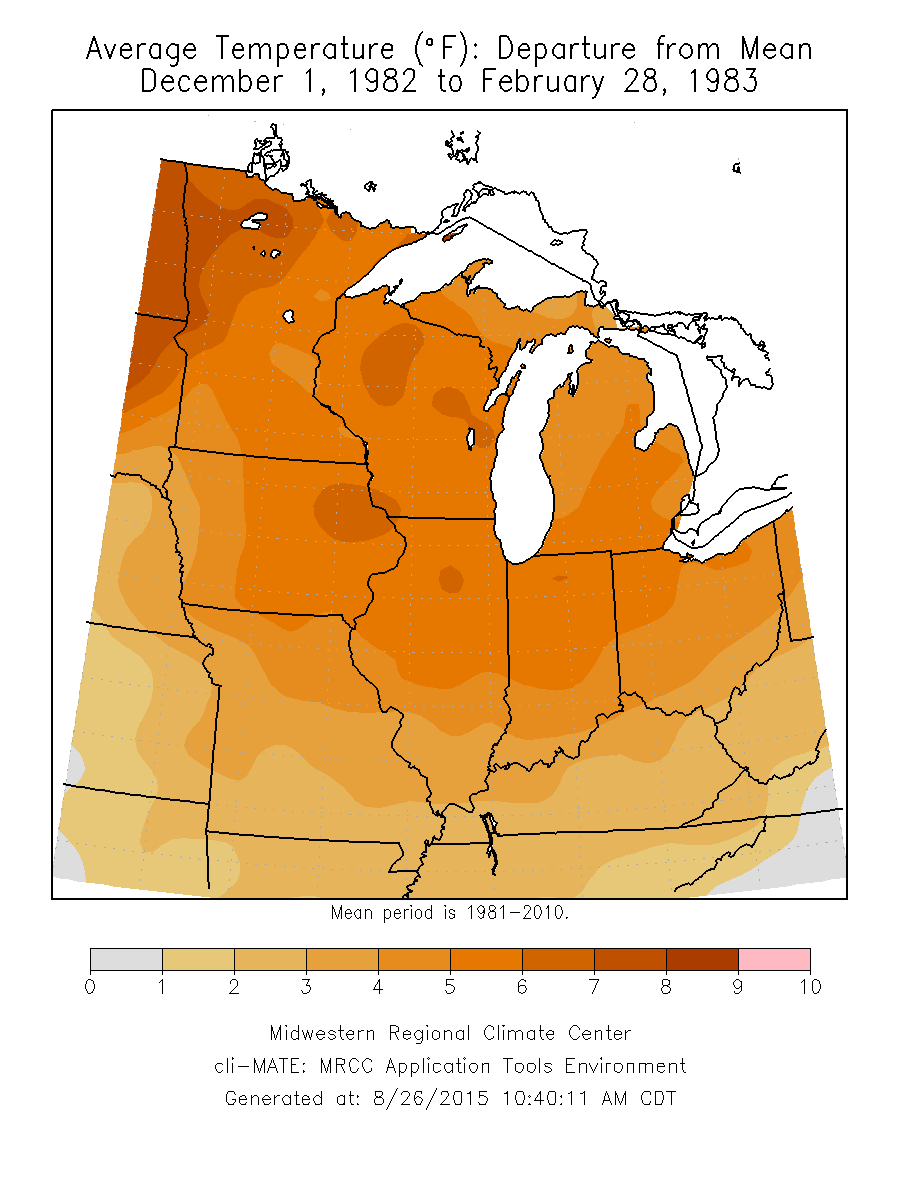
The precipitation amounts during the winter months for the 1982-83 event were generally higher than in the 1997-1998 El Niño and were above average across most of Illinois, as well as in Missouri, Iowa, southeastern Minnesota, and Wisconsin.
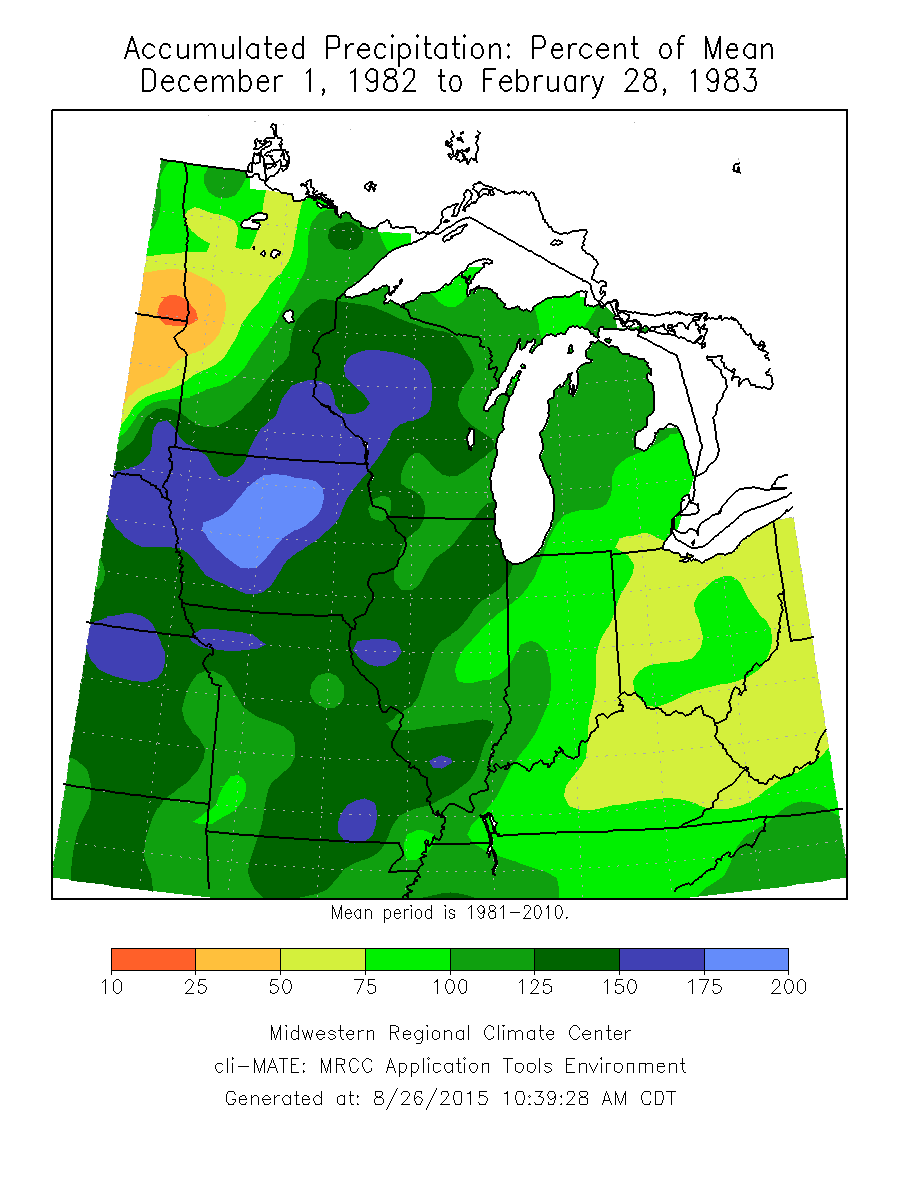
The snowfall for the core winter months of the El Niño 1982-83 event were much below-average across Illinois, even more so than the 1997-98 event. In fact, below average snowfall was experienced in much of Missouri, Indiana, Michigan, Ohio, and Kentucky.
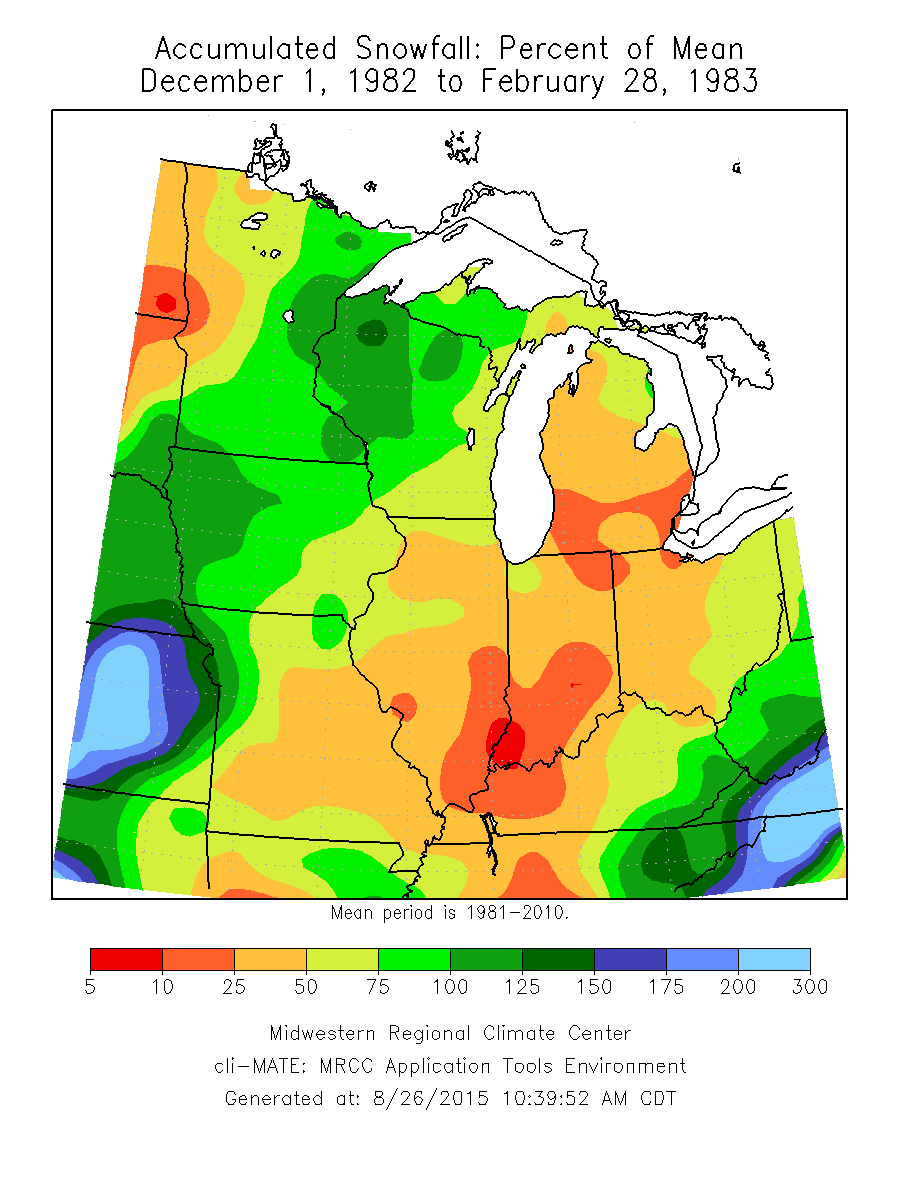
While this post describes the conditions of last two major El Niño events, each El Niño event is unique and other factors such as the Arctic Oscillation or an unexpected weakening of the current El Niño event could lead to much different results (as the last two years have taught us).
